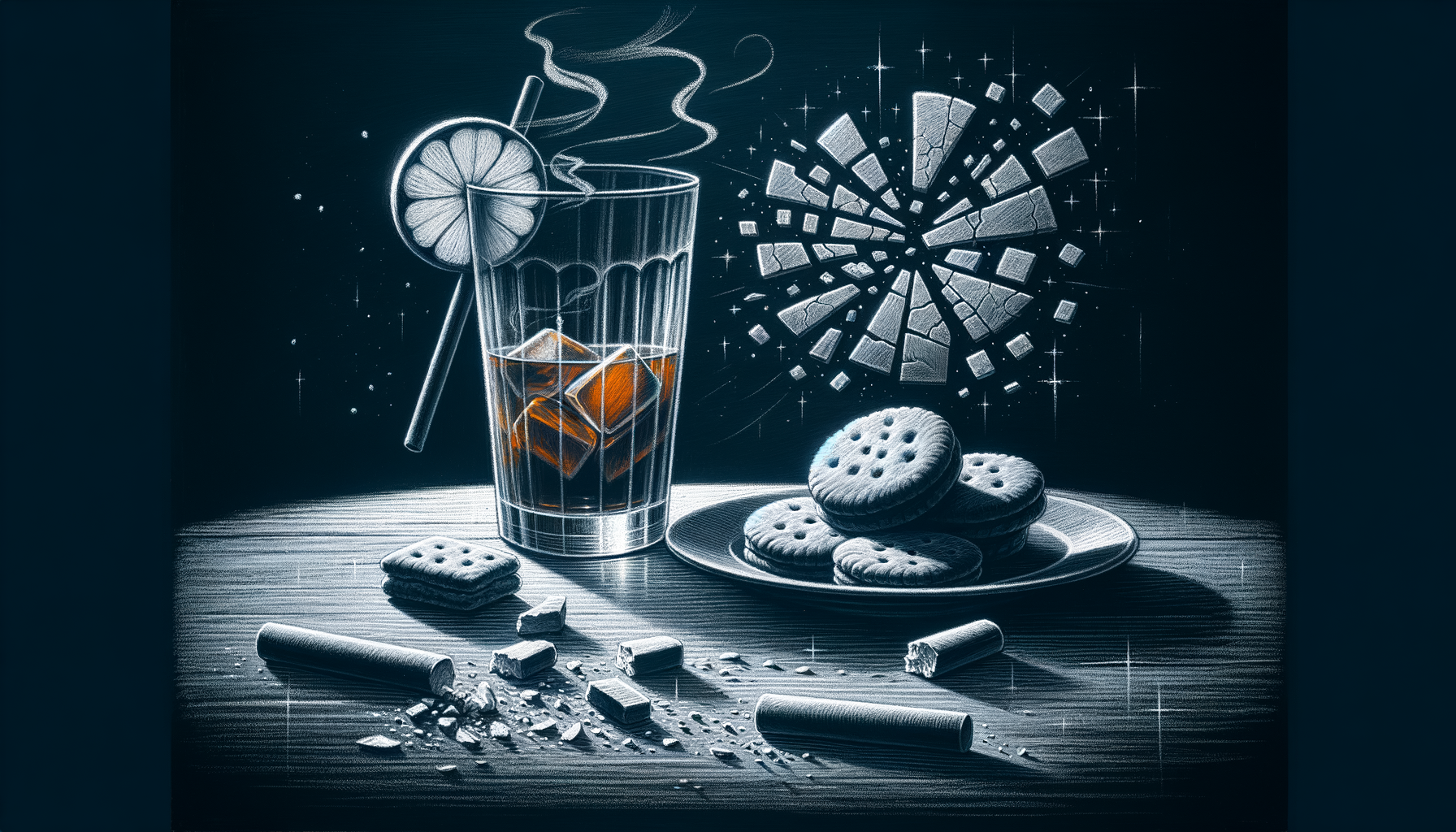“This will ruin you,” my best friend said, her voice crackling through my speakerphone like a Regency-era warning, a la Lady Catherine de Bourgh. “It’ll break your brain, your soul, and possibly your ability to ever eat biscuits again.”
She wasn’t wrong.
This was six months ago, just before I embarked on the hardest piece I’ve ever written—an essay delving into modern-day chivalry and its place in today’s romantic landscape, or lack thereof. And by chivalry, I don’t mean medieval knights clanking around in shining armor. No, I mean the quiet, often unnoticed gestures of respect, thoughtfulness, and care—the door-holding, the coat-offering, the earnest “did you get home safe?” kind of behavior.
It was going to be personal, deeply researched, and (I foolishly thought) fairly straightforward. Instead, it transformed into an almost-apocalyptic wrecking ball for my beliefs, my dating history, and my attachments to southern hospitality as a bedrock of romance. Spoiler: biscuits were involved.
Section 1: Why this topic haunts me
If you’re lucky enough to grow up in a city like Savannah, with its wrought-iron balconies and cobblestone streets, you’ll spend an unreasonable amount of time imagining yourself as the heroine of a sweeping romance. Picture this: you’re perched on a veranda at twilight, cicadas humming in the background as a suitor kneels on one knee to rescue your stubbornly independent but suddenly overwhelmed self.
Chivalry, to me, was never about gender or tradition—it was about mutual care. The idea that someone would go out of their way to make you feel noticed, cherished, or even just a little less burdened, felt universally appealing. But things got fuzzy as I grew older.
Chivalry started feeling less like a healthy exchange of affection and more like a minefield. If someone opened a door for me on a date, I second-guessed whether I was being patronized. When I instinctively offered a small, kind gesture in return, I’d worry I seemed desperate. Was I reinforcing outdated roles, or was I simply taking part in a shared humanity? Chivalry—romantic and otherwise—had become a paradox that tied my sweet-tea-soaked upbringing into intellectual knots.
And so, when my editor asked me to craft an essay about how it fits into modern relationships, I decided to dive in. Headfirst. Heart last.
Section 2: The research spiral
Here’s the thing about tackling big ideas while simultaneously eating one-too-many pimento cheese sandwiches: it’s messy. The more I researched, the more complicated the portrait of true chivalry became.
I analyzed historical contexts, poring over articles about medieval courtly love and dissecting books like Southern Ladies and Gentleman with a highlighter. Did you know the Victorians had literal handbooks for properly tipping your hat to a lady? I imagined their ghosts lovingly shaming me for my improper posture at my kitchen table.
I also dove into pop culture, watching rom-coms like Notting Hill and Titanic through a new lens. (Note to self: Jack’s sacrifice wasn’t just chivalrous—it was unreasonable. That door totally had room for two.) Was modern-day chivalry merely performative, designed to check a box, or did it still serve as scaffolding for deeper emotional connection? The problem was, no one seemed to agree.
I even went so far as to crowdsource opinions from friends—single, married, dating everyone in between. Predictably, their takes were all over the map:
- “Chivalry’s definitely dead. A guy once Venmo-requested me for coffee the day after our date.”
- “I expect my boyfriend to walk on the street-side of the sidewalk, but I also send him memes all day—that’s modern chivalry, right?”
- “No, Game of Thrones taught us all the knights are secretly villains. Chivalry was propaganda.”
It became clear that my thoughts weren’t merely scattered—they were broken into jagged puzzle pieces I couldn’t fit together.
Section 3: The personal revelations (and one bad date)
You’d think writing the essay would finally give me clarity, but no. Instead, it forced me to confront my romantic baggage more directly than Adele confronts her exes through ballads.
One particularly ridiculous realization came on a second date with a seemingly nice enough guy. As we stood in line for ice cream, he waved me forward ahead of him: “You go first.” But when we reached the register, it was clear he didn’t mean in terms of ordering. Instead, a tense silence suggested I’d be footing the bill.
Reader, I paid. But it was less about the $6.95 (yes, I got waffle cone sprinkles—don’t ask how much they cost) and more about the collapse of an unsaid agreement. Chivalry, like romance, isn’t about grand gestures or theoretical debates—it’s about moment-to-moment kindness that makes you feel seen.
So, whether it’s someone helping with your coat or splitting dessert without being prompted, the gesture matters. Without it, disappointment lingers the way overripe magnolias scent a porch: heavy, cloying, and impossible to ignore.
There I was, overanalyzing everything as I walked home, while also contemplating ice-cream-induced indigestion. But slowly, that date helped me rewrite my fundamental question from “Does chivalry still exist?” to “What does care mean to you, and how do you express it?”
It took weeks for that epiphany to reflect in my writing. The piece itself went through six drafts, two breakdowns, and one bourbon-fueled brainstorming session (Woodford Reserve, for those curious). I stopped seeking a concrete answer about whether chivalry is alive or dying. Instead, I focused on the universal longing for connection built on respect, no matter what package it comes in.
Section 4: Why it was worth it
Looking back, the essay took me apart so it could put me back together—slightly bruised, but better for the wear. Along the way, I had to shed old ideas about knight-on-a-white-horse fantasies and make room for messy, imperfect realities.
Here’s the takeaway: Romance at its best is messy—a baked-on peach cobbler of contradictions and complexities. But if you’re willing to lean into care, vulnerability, and yes, a bit of chivalry when it feels authentic, you’ll find something better than perfection. You’ll find people who actually see you. And for what it’s worth, I’m absolutely committed to being the kind of person who notices details too—like whether someone likes their biscuits buttered or dry, because that’s care, y’all.
Turns out, the hardest piece I’d ever written wasn’t really about chivalry at all. It was about learning to value both vulnerability and hope in a way that’s as timeless as Savannah sunsets—and way more rewarding than ice cream dates gone wrong.




















